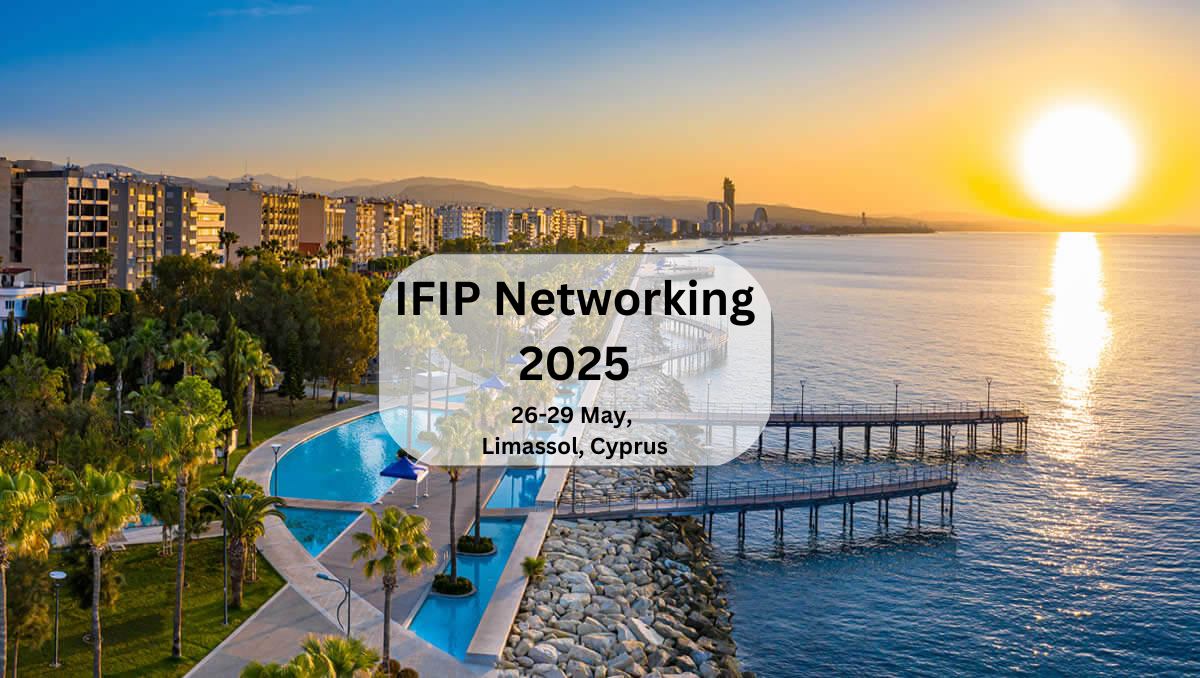
Data-Driven Research, Reproducibility, and FAIR Practices in Future G Networks
Introduction:
The increasing reliance on data-driven methodologies across scientific domains has revolutionized the discovery process and accelerated the pace of knowledge production. In particular, digital infrastructures and the adoption of AI/ML-driven solutions have demonstrated transformative potential. However, this rapid evolution necessitates more than ever, a critical investigation of methodologies and the validity of results.
The FAIR (Findable, Accessible, Interoperable, and Reusable) Data Principles provide a foundation for improving data management and stewardship. The widespread adoption of FAIR principles reflects their importance in enabling data sharing, experimentation, and collaboration across actors. By ensuring that research data is preserved and conclusions drawn from it are well-documented, we can enable reproducibility, support a robust methodology and accelerate scientific discovery.
Despite significant effort for reproducibility, barriers persist due to the additional effort required from researchers, limited incentive from scientific organizations and funding agencies and the lack of fully integrated and scalable end-to-end solutions to mitigate this burden. To address these challenges, there is a pressing need for collaborative efforts to develop usable and robust platforms, tools, and policies that enable reproducibility and data sharing while reducing the overhead on researchers.
This workshop serves as a platform for researchers, practitioners, and stakeholders to discuss and present innovative approaches to data sharing, reproducibility, and FAIR principles in the context of Future G Networks. Contributions are encouraged that explore experimental methodologies, platforms for data sharing, and reproducibility initiatives that can benefit the research community.
Workshop Objectives:
- Explore methodologies and platforms that support FAIR data practices and reproducibility in digital infrastructures and Future G Networks.
- Discuss challenges and opportunities in data-driven research involving AI/ML methodologies.
- Share best practices and lessons learned from reproducibility-focused initiatives across disciplines.
- Foster collaboration and innovation to create scalable, low-barrier solutions for data sharing and reproducibility.
- Development, Curation, dissemination and standardization of data formats, metadata and archiving principles for large scale data set management.
Topics of Interest:
- Advanced wireless networking experimentation
- New waveforms
- Higher frequencies up to THz
- Spectrum and wireless management
- Integrated sensing and communication
- Multiple heterogeneous radio management
- Smart/intelligent infrastructure operation and management
- Advanced protocols and architecture (virtualization, softwarization, programmability)
- AI applied to infrastructure operation and optimization at all layers
- Generation of data to train algorithms
- Distribution of intelligence into the Edge of the network
- Design and validation of new Edge/Fog/Open RAN infrastructures
- Software and components deployment
- Distributed resource management
- Geo-distributed data management
- Federated Deep Learning
- Use Cases and deployment best practices
- ORAN testing and validation
- Methodology for designing and operating a scientific instrument
- Instrumentation and measurement
- Architecture and APIs
- Experiment design and life-cycle management
- Data management, metadata
- Trustworthy Reproducibility
- Testbed implementation and operation
Important Dates:
- Paper submission deadline: March 31, 2025
- Notification of acceptance: April 25, 2025
- Camera-ready deadline: May 2, 2025
- Workshop: May 26, 2025
Paper Submission:
- Submitted papers should be written in English by following the IEEE conference format (double-column, 10pt font), with a maximum length limit of 6 (six) printed pages, including all figures, references, and appendices.
- Papers should be submitted through EDAS in PDF using the following link:https://edas.info/newPaper.php?c=33421&track=129127
- Only original papers that have not been published or submitted for review elsewhere will be considered for publication in the proceedings.
- Papers will appear in the conference proceedings and will be submitted for inclusion into IEEE Xplore subject to meeting IEEE Xplore’s scope and quality requirements.
- At least one author of each accepted paper is required to register and present the work in the workshop.
TPC Co-Chairs
- Panayiotis Andreou, UCLan Cyprus, Cyprus
- Georg Carle, Technical University of Munich
- Serge Fdida, Sorbonne Université, EU ESFRI SLICES
- Abhimanyu (Manu) Gosain, Northeastern University, NSF PAWR Office
- Stavroula Maglavera, UTH, Greece
Technical Program Committee Members (pending)
- Bartosz Belter, PSNC, Poland
- Olivier Bonaventure, UC Louvain, Belgium
- Raffaele Bruno, CNR, Italy
- Yuri Demchenko, University of Amsterdam, The Netherlands
- Costas Filis, Cosmote, Greece
- Cheick Mamadou Bamba Gueye, UCAD, Senegal
- Louis Fendji, University of Ngaoundéré, Cameroun
- Sebastian Gallenmüller, TUM, Germany
- Manu Gosain, Northeastern University
- Tobias Hoßfeld, Universität Würzburg, Germany
- Farouk Kamoun, Université Sesame, Tunisia
- Kate Keahey, University of Chicago, USA
- Dan Kilper, TCD, Ireland
- JongWon Kim, GIST, Korea
- Raymond Knopp, Eurecom, France
- Nikos Makris, University of Thessaly, Greece
- Thomas Magedanz, TU Berlin, Germany
- Joyce Mwangama, UCT, South Africa
- Vitalis Ozianyi (STR), Strathmore University, Kenya
- Luís Manuel Pessoa, Inesctec, Portugal
- José Rezende, RNP, Brazil
- Manuel Ricardo, Universidade do Porto, Portugal
- Paul Ruth, RENCI, USA
- Damien Saucez, INRIA, France
- Ivan Seskar, Rutgers University, USA
- Jörg Widmer, IMDEA Networks Institute, Spain

